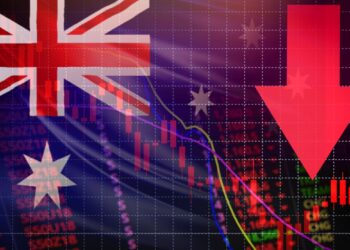Amid calls for restraint and de-escalation from the Australian government, Treasurer Jim Chalmers highlighted the economic ramifications of heightened tensions, emphasising the need for a balanced approach in addressing both security and economic challenges.
Speaking in Washington over the weekend, and then reiterating his message on Sky News on Monday, Chalmers said the conflict dynamics in the Middle East, particularly the risk of a broader regional war, have drawn attention to potential impacts on inflation.
“The conflict in the Middle East risks another spike in inflation and after we’ve been making welcome and encouraging progress around the world and, indeed, in Australia, the global economy cannot afford another spike in inflation which comes from escalations in tensions in the Middle East.
“This is primarily a concern about the innocent people in the Middle East. We don’t want to see more lives lost but we also don’t want to see more damage done to the global economy. Conflict in the Middle East, rising, escalating tensions in the Middle East do risk another spike in inflation and we need to avoid that.”
Acknowledging Australia’s “fraught and fragile economy”, combined with high interest rates, Chalmers said Labor’s upcoming budget will have a premium on responsibility and a focus on economic security.
“We’re obviously monitoring very closely the situation in China. We’re monitoring very closely the consequences, the implications of escalating tensions in the Middle East, we saw some small spikes in the price of oil and gold on the weekend and more recently, and this is really just another indication of the economic consequences of the conflict that we’re seeing in that important part of the world.
“In this context, our budget will put a premium on responsibility and an emphasis on security.”
The budget, the Treasurer elaborated, will prioritise investments in economic security alongside measures to address inflationary pressures.
“We want to align our national security and our economic security interests, this is how we help relieve cost‑of‑living pressures, repair our budget, and reform our economy as an antidote to the kinds of risks that we see escalating around the world. We want to make a future that is prosperous, that is secure – the budget will be an important part of that,” the Treasurer said.
Turning his attention to the Reserve Bank, Chalmers did not want to elaborate on how the Fed’s recent messaging, alongside recent geopolitical events, could impact the RBA ahead of its next meeting.
Instead, Chalmers said: “When the Reserve Bank sits down to weigh up on the 7th of May decisions about interest rates, they will factor all of that in and weigh all of that up, including the international situation and the trajectory of interest rates here in the US.”
On Friday, US officials confirmed initial reports from the US-based ABC network indicating that Israel carried out a military operation on Iran, despite Iran’s attempts to downplay the attack.
Immediately following media reports of explosions near the Iranian city of Isfahan, oil prices surged by over 3 per cent and the price of gold reached a near-record high of over $3,700 per ounce. The news also prompted a decline in the Australian share market, with the S&P/ASX 200 trading at $7,494.60 just after 12pm on Friday, down from $7,642.10 at opening.
The Australian dollar was also sent on a downward trajectory, sitting at just below US64 cents at 1pm on Friday.
By Monday afternoon, as tension eased, the S&P/ASX 200 bounced back up to around $7,650 while gold moved down slightly to $3,682.64 and oil prices retreated.







